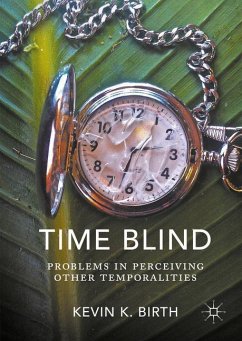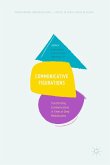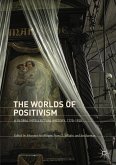This book explores how modern concepts of time constrain our understanding of temporal diversity. Time is a necessary and pervasive dimension of scholarship, yet rarely have the cultural assumptions about time been explored. This book looks at how anthropology--a discipline known for the study of cultural, linguistic, historical, and biological variation and differences--is blind to temporalities outside of the logics of European-derived ideas about time. While the argument focuses primarily on anthropology, its points can be applied to other fields in the sciences, humanities, and social sciences.
Bitte wählen Sie Ihr Anliegen aus.
Rechnungen
Retourenschein anfordern
Bestellstatus
Storno








